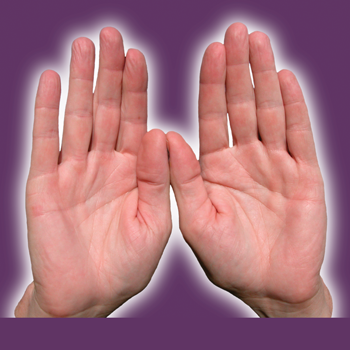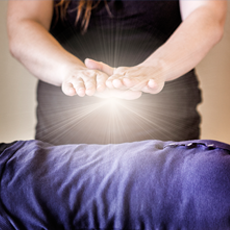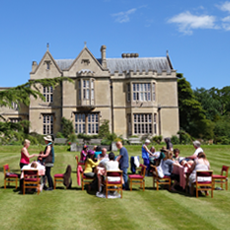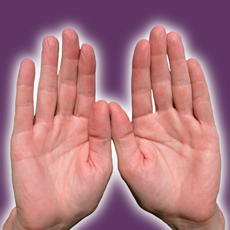by Terry Sanders, M.D.
Life was good. Dorothy, a 63-year-old RN, and I, a 72-year-old medical doctor, loved retirement and the life we led. Although I had a crippled leg as a result of childhood polio, we were strong, active, and tireless. We roamed the hills of the Ouachita National Forest by foot or on horseback in the daytime and played music with friends three or four nights a week.
It was not to last. Dorothy developed rheumatoid arthritis in both hands, began to have pain in her knee, which hampered both walking and riding, and rapidly began to lose strength and endurance. By the fall of 1996 she had trouble getting up from a chair, frequently dropped cups, and was considering getting a walker. She became very depressed.
She began going to a health food store owned by Carol Hetzel of Mena, Arkansas. She felt that she received some relief from herbs and an ointment she obtained there. One day in December she returned from a visit to the store with the announcement that she had had a "Reiki treatment" and that it had helped a great deal.
"Reiki" was a new word to me. Dorothy was intentionally vague in her description of it, for she knew that I was completely convinced that any form of treatment that didn't come from conventional medicine was a scam. However, she had come home smiling for the first time in months. I DID consider it a scam and attributed any improvement to the placebo effect, but that didn't bother me; if she felt better I didn't mind her spending money on a scam.
Carol had just received her Reiki II. As I learned later, she already had training in reflexology, iridology, and various other alternative methods. After her first Reiki treatment, Dorothy told Carol that she wanted to be in the first class when Carol became qualified to teach.
One thing Carol told Dorothy bothered me. She told her that her knuckles, which were at least twice normal size, would lose a lot of their swelling. I had treated many people with rheumatoid arthritis and had referred some to specialists. None had received lasting improvement. Dorothy had already tried a long list of anti-arthritic drugs. I warned her to not get her hopes up, for I didn't want her to be disappointed when she failed to improve.
To my amazement, Dorothy did improve. Within a few days her pain was gone, and, as time went by, the swelling began to leave her knuckles. (Today, 10 years later, her fingers are crooked and some don't bend properly, but the swelling is completely gone, and she seldom has pain.) She also began to regain her energy and strength. The depression lifted, and she began walking again.
I couldn't understand it. Nothing in my 50 years of medicine had prepared me for this. I was positive that the Reiki had nothing to do with it. How could it? Among other things, Carol had told Dorothy to get on a diet of fish, chicken, vegetables, nuts, and fruit. I rationalized that the diet was responsible for the improvement. No matter what had caused the improvement, I was grateful because Dorothy always returned from her Reiki treatments smiling and enthusiastic. "What a pity," I thought, "that she is excited about a scam."
In December of 1996, Dorothy received her Reiki I and II from Carol. Since I was such a non-believer, we had more or less adhered to a, "don't ask; don't tell" policy, and I knew absolutely nothing about Reiki. Although Dorothy's health had improved in many ways, it never crossed my mind that Reiki was responsible.
Dorothy was so excited about being "a traditional Reiki II"— whatever that meant— that I felt I should humor her, so I said, "Show me what you have learned." I felt very noble to waste my time with such foolishness.
She had already purchased a Reiki table. I lay down on it expecting to feel absolutely nothing. She turned on some (to me) weird music, and told me to keep my eyes closed. To my amazement my legs began to tingle, although she hadn't touched me. Soon I began to feel as though my body was flattening until it was only an inch thick. Then, I felt as though she was throwing dry water on my chest — it didn't feel wet, but it seemed to hit in one place and then splatter, as would water.
When she told me to open my eyes, my first question was, "What kind of electrical gadget were you using on me?" When she told me that the things I had felt were due to Reiki and that she had not touched me at all, I realized that there was something to Reiki. But what? How could it possibly work? I tried to understand it and make it fit into my medical training template, but I couldn't make heads or tails of it.
A couple of months later, Dorothy received her Masters training, and a few weeks after that she passed Reiki I and II to me. I didn't feel anything more than a little tingling when I received the attunements. I had no plans to ever use the Reiki. Two years passed and I did nothing with my Reiki. I still felt there was some value to Reiki, but I didn't know what it was and wasn't really interested. When Dorothy came home with some tale of Reiki helping some illness, which I, as a doctor, knew that I couldn't help, I was still skeptical.
Dorothy's younger brother Jim was as open to all things as Dorothy was. He was
a trim, broad-shouldered man in his early sixties, who appeared to be the picture of health, but, because of war and horse injuries, was on 100% disability. His back was so stiff and caused so much pain that it was difficult for him to bend far enough forward to be able to see in the mirror when shaving.
On April 26, 1998, Jim came up from Texas, and Dorothy gave him his Reiki I. She also treated his back several times, and he was pain free when he returned home. This impressed me, as I had watched him suffer for years.
Although I was basically a very healthy man, I had had occasional bouts of PAT (Paroxysmal Auricular Tachycardia) for 30 years. It had not been much of a problem, but it became increasingly frequent and began to occur every time I hiked in the hills. At Dorothy's insistence, I went to a cardiologist, who told me what I already knew, gave me a prescription, and said, "Take this when you have an attack — but you'll live just as long if you don't take it as you will if you do."
If I took the medicine I developed diarrhea, so I took an occasional dose, but mostly left it on the shelf. One morning I was walking alone when my heart became so irregular that I had to stop to rest several times before I could make it back to the house. Dorothy, who had spent many years as an ICU nurse, listened to my heart and was alarmed by the pattern; she insisted that I take some Reiki.
I lay on the table, and soon I was aware that the pattern had reverted to normal.
I didn't feel or see anything unusual. When Dorothy finished, she said, "I think I cured you."
My mind flashed back to what I had been taught in medical school, "Nobody cures Paroxysmal Auricular Tachycardia, Dorothy. I'll have it as long as I live."
"Mentally I saw your heart." Dorothy replied. "It had a blackened area on it. I mentally removed all the black, and I have a distinct feeling that you are cured of your PAT." I was dumbfounded. That was the first I had heard of that kind of thing, and I couldn't believe that Reiki could have any long term effect on PAT when millions of dollars had been spent on it without a cure having been found. Dorothy was beginning to believe some very weird things!
I had been having attacks almost every time I walked and I resolved to keep track. To my utter amazement, it was months before I had another attack. It was very mild; Dorothy treated me for a few minutes and I have never had another.
I began to believe that Reiki must be a good thing. For the first time, I started reading and talking about it. And Dorothy and I began to give each other Reiki almost daily.
This is an excerpt from an article in the Fall 2006 issue of the Reiki News Magazine.







